Technical University of Berlin: Statistics
Updated:
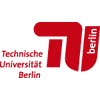

| Position | Category |
|---|---|
| #223 of 14,131 | In the World |
| #77 of 2,785 | In Europe |
| #19 of 369 | In Germany |
| #3 of 46 | In Brandenburg |
| #3 of 36 | In Berlin |
| #20 of 2,335 | For Pharmacy |
| Top100 | For 16 other topics |
Quick Review
- Enrollment
- 34,842
- Type
- Non-profit
- Funding
- Public-private
partnership - Highest Degree
- Doctorate
- Website
- www.tu.berlin
- Languages
- German
- Acceptance rate
- 25%*
* The Technical University of Berlin is among the institutions that don't provide data on acceptance rates. This might happen because the university has programs where applicants only need to meet admission requirements to enroll and don't necessarily compete with others.
We estimate the above acceptance rate based on admission statistics of closely ranked nearby universities with similar research profiles that do publish such data.
Acceptance rate & Admissions
| Admissions Requirements | Secondary school certificate (Reifezeugnis) or equivalent |
|---|---|
| Academic Calendar | October to September (October - March; April-September) |
| Enrollment | 34,842 |
Research profile
Technical University of Berlin is a world-class research university with 94,691 scientific papers published and 2,124,586 citations received. The research profile covers a range of fields, including Engineering, Physics, Chemistry, Quantum and Particle physics, Biology, Computer Science, Liberal Arts & Social Sciences, Environmental Science, Materials Science, and Organic Chemistry.
Technical University of Berlin majors
by publication & citation count
Annual publication & citation counts
| Year | Publications | Citations |
|---|---|---|
| 1992 | 922 | 7580 |
| 1993 | 1036 | 7585 |
| 1994 | 1067 | 8420 |
| 1995 | 1051 | 10263 |
| 1996 | 1214 | 11288 |
| 1997 | 1197 | 11854 |
| 1998 | 1236 | 13042 |
| 1999 | 1286 | 13779 |
| 2000 | 1236 | 14720 |
| 2001 | 1269 | 16432 |
| 2002 | 1700 | 20321 |
| 2003 | 1550 | 23334 |
| 2004 | 1718 | 24668 |
| 2005 | 1641 | 29856 |
| 2006 | 1720 | 32463 |
| 2007 | 1873 | 35276 |
| 2008 | 2067 | 39739 |
| 2009 | 2380 | 42484 |
| 2010 | 2767 | 48680 |
| 2011 | 2660 | 55638 |
| 2012 | 2960 | 62571 |
| 2013 | 2952 | 69927 |
| 2014 | 3049 | 78064 |
| 2015 | 3441 | 83317 |
| 2016 | 3627 | 89157 |
| 2017 | 3443 | 96758 |
| 2018 | 3685 | 110598 |
| 2019 | 3814 | 124148 |
| 2020 | 4609 | 147965 |
| 2021 | 4813 | 170836 |
| 2022 | 4343 | 164997 |
| 2023 | 4233 | 176708 |
| 2024 | 3134 | 170585 |
Tuition
The tuition table for Technical University of Berlin gives an overview of costs but prices are approximate and subject to change and don't include accommodation, textbooks, or living expenses. The costs of programs might differ significantly for local and international students. The only source of truth for current numbers is the university's official website.
| Program | Tuition Cost (per semester) |
|---|---|
| Bachelor's Degree | €310 |
| Master's Degree | €310 |
| Doctoral Degree | Free |
All costs are in Euros (€).
Programs and Degrees
The table below displays academic fields with programs and courses that lead to Bachelor's, Master's, and Doctorate degrees offered by Technical University of Berlin.
Note that the table provides a general overview and might not cover all the specific majors available at the university. Always visit the university's website for the most up-to-date information on the programs offered.
| Programs | Bachelor | Master | Doctoral |
|---|---|---|---|
| Art & Design | No | Yes | TBD |
| Biology | No | Yes | TBD |
| Business | Yes | Yes | TBD |
| Chemistry | Yes | Yes | Yes |
| Computer Science | Yes | Yes | Yes |
| Economics | Yes | Yes | TBD |
| Engineering | Yes | Yes | Yes |
| Environmental Science | Yes | Yes | TBD |
| Liberal Arts & Social Sciences | Yes | Yes | TBD |
| Mathematics | Yes | Yes | Yes |
| Medicine | No | No | No |
| Physics | Yes | Yes | Yes |
| Psychology | Yes | Yes | TBD |
| Bachelor's Degree | Agricultural Economics, Agriculture, Applied Mathematics, Architecture, Brewing, Building Technologies, Business Computing, Chemical Engineering, Chemistry, Civil Engineering, Computer Education, Computer Engineering, Computer Science, Cultural Studies, Ecology, Economics, Electrical and Electronic Engineering, Energy Engineering, Environmental Engineering, Environmental Management, Environmental Studies, Fine Arts, Food Science, Food Technology, Geological Engineering, Horticulture, Industrial Engineering, Information Technology, Landscape Architecture, Management, Materials Engineering, Mathematics, Mechanical Engineering, Media Studies, Metal Techniques, Modern Languages, Natural Sciences, Philosophy, Physical Engineering, Physics, Production Engineering, Regional Planning, Sociology, Technology, Technology Education, Town Planning, Transport and Communications, Vocational Education |
|---|---|
| Master | Aeronautical and Aerospace Engineering, Architectural Restoration, Architecture, Art History, Automotive Engineering, Biomedical Engineering, Biotechnology, Brewing, Chemical Engineering, Chemistry, Civil Engineering, Communication Studies, Computer Engineering, Computer Science, Construction Engineering, Design, Educational Sciences, Electrical Engineering, Energy Engineering, Engineering, Engineering Management, Environmental Engineering, Environmental Management, Environmental Studies, Food Science, Food Technology, Foreign Languages Education, Geological Engineering, Geology, Industrial and Production Economics, Industrial Engineering, Industrial Management, Information Management, Information Technology, Landscape Architecture, Management, Marine Engineering, Materials Engineering, Mathematics, Mechanical Engineering, Media Studies, Modern Languages, Naval Architecture, Neurosciences, Nutrition, Philosophy, Physics, Polymer and Plastics Technology, Production Engineering, Regional Planning, Sociology, Statistics, Technology, Telecommunications Engineering, Town Planning, Transport and Communications, Urban Studies, Vocational Education |
| PhD | Architecture and Planning, Arts and Humanities, Business Administration, Civil Engineering, Computer Science, Ecology, Economics, Education, Electronic Engineering, Engineering, Engineering Management, Landscape Architecture, Mathematics, Measurement and Precision Engineering, Mechanical Engineering, Natural Sciences, Regional Planning, Sociology, Town Planning, Transport Engineering |
| Habilitation | Architecture and Planning, Arts and Humanities, Business Administration, Chemistry, Civil Engineering, Computer Science, Ecology, Economics, Education, Electronic Engineering, Engineering, Engineering Management, Geology, Landscape Architecture, Mathematics, Measurement and Precision Engineering, Mechanical Engineering, Natural Sciences, Physics, Regional Studies, Sociology, Town Planning, Transport Engineering |
Technical University of Berlin alumni
-
Ludwig Wittgenstein

- Enrolled in the Technical University of Berlin
- 1906-1908 graduated with Diplom in engineering
- Occupations
- philosopherteachermathematicianarchitectural theoreticianprofessor
- Biography
-
Ludwig Josef Johann Wittgenstein was an Austrian philosopher who worked primarily in logic, the philosophy of mathematics, the philosophy of mind, and the philosophy of language.
-
Fritz Haber
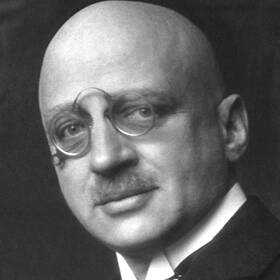
- Enrolled in the Technical University of Berlin
- Studied in 1886-1891
- Occupations
- engineerchemistacademicuniversity teacherphysicist
- Biography
-
Fritz Haber was a German chemist who received the Nobel Prize in Chemistry in 1918 for his invention of the Haber process, a method used in industry to synthesize ammonia from nitrogen gas and hydrogen gas. This invention is important for the large-scale synthesis of fertilizers and explosives. It is estimated that a third of annual global food production uses ammonia from the Haber–Bosch process, and that this food supports nearly half the world's population. For this work, Haber has been called one of the most important scientists and industrial chemists in human history. Haber also, along with Max Born, proposed the Born–Haber cycle as a method for evaluating the lattice energy of an ionic solid.
-
Konrad Zuse
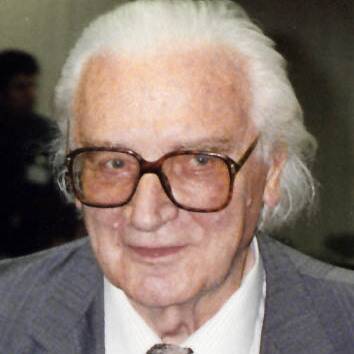
- Enrolled in the Technical University of Berlin
- Studied in 1927-1935
- Occupations
- inventorcivil engineerentrepreneurcomputer scientistengineer
- Biography
-
Konrad Ernst Otto Zuse was a German civil engineer, pioneering computer scientist, inventor and businessman. His greatest achievement was the world's first programmable computer; the functional program-controlled Turing-complete Z3 became operational in May 1941. Thanks to this machine and its predecessors, Zuse is regarded by some as the inventor and father of the modern computer.
-
Chaim Weizmann
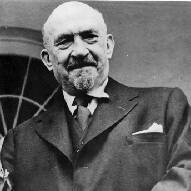
- Enrolled in the Technical University of Berlin
- In 1894 studied chemistry
- Occupations
- pedagoguechemistuniversity teacherpoliticianautobiographer
- Biography
-
Chaim Azriel Weizmann was a Russian-born Israeli statesman, biochemist, and Zionist leader who served as president of the Zionist Organization and later as the first president of Israel. He was elected on 16 February 1949, and served until his death in 1952. Weizmann was instrumental in obtaining the Balfour Declaration of 1917 and convincing the United States government to recognize the newly formed State of Israel in 1948.
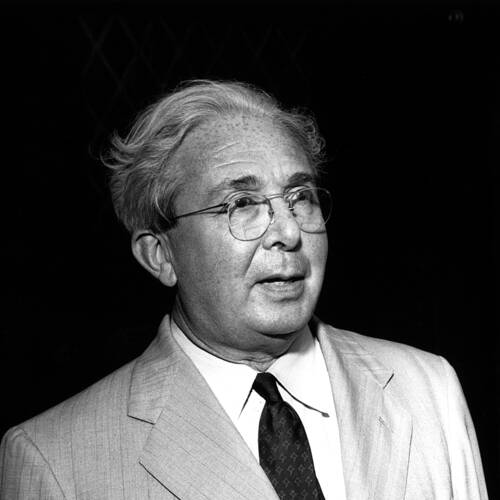
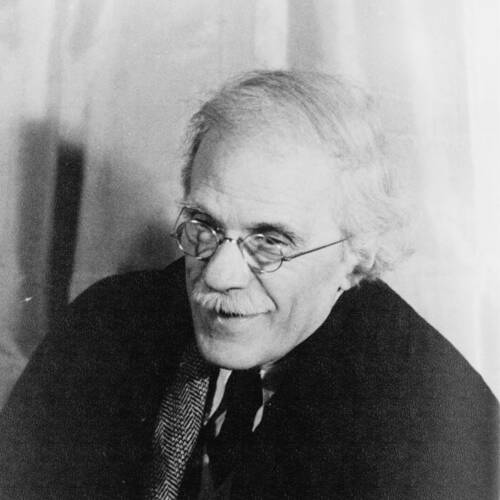
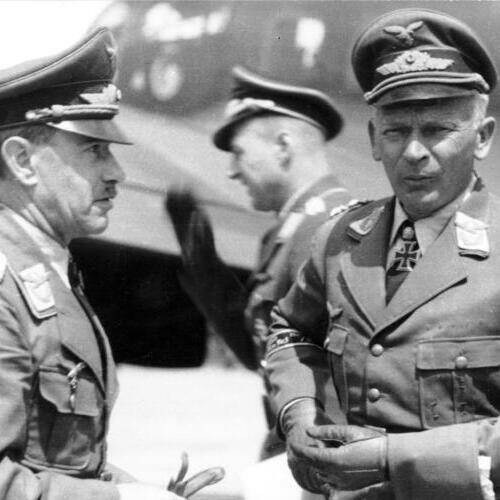
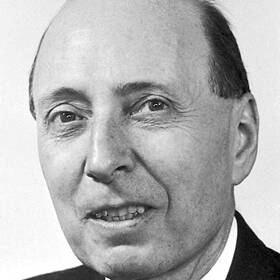
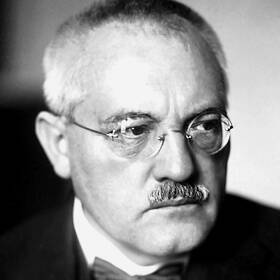
Technical University of Berlin faculties and divisions
| Faculty : Economics and Management | Business Administration, Economics, Energy Engineering, Health Sciences, Law, Management, Technology, Transport Management |
|---|---|
| Faculty : Electrical Engineering and Computer Science | Computer Engineering, Computer Science, Electrical Engineering, Electronics and Automation, Energy Engineering, Microelectronics, Software Engineering, Telecommunications Engineering |
| Faculty : Humanities | Communication Arts, French, Gender Studies, History, Literature, Pedagogy, Philosophy, Social Sciences, Vocational Education |
| Faculty : Mathematics and Natural Sciences | Astronomy and Space Science, Chemistry, Mathematics and Computer Science, Optics, Physics, Solid State Physics |
| Faculty : Mechanical Engineering and Transport System | Aeronautical and Aerospace Engineering, Astronomy and Space Science, Engineering Drawing and Design, Management, Mechanics, Psychology, Transport and Communications |
| Faculty : Planning, Building, Environment | Architectural and Environmental Design, Ecology, Environmental Management, Heritage Preservation, Landscape Architecture, Regional Planning, Sociology, Town Planning, Urban Studies |
| Faculty : Process Sciences | Biotechnology, Energy Engineering, Environmental Engineering, Food Science, Food Technology, Materials Engineering, Sound Engineering (Acoustics) |
General information
| Alternative names | TUB Technische Universität Berlin |
|---|---|
| Founded | 1946 |
| Accreditation | Akkreditierungsrat |
| Motto | Wir haben die Ideen für die Zukunft |
Location and contacts
| Address | Straße des 17. Juni 135 Berlin, 10623 Germany |
|---|---|
| City population | 3,782,000 |



